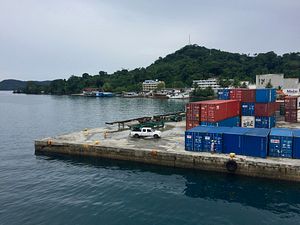There is a strategic opportunity to advance Western interests by broadening and deepening the integration of Palau in the Asia-Pacific architecture. As the most prosperous, per capita, of the Small Pacific Island Countries (SPICs), Palau has the potential to develop the capacities required to meaningfully participate in more subregional architectures and initiatives. Moreover, Palau faces the clear and present danger of revenue volatility associated with limited economic diversification, climate change vulnerabilities, and natural disasters. The integration of Palau in East Asian and/or Southeast Asian architectures and initiatives could help bring into existence sufficient conditions to achieve economic diversification, fiscal consolidation, higher-value industries, and inclusive economic growth. If so, this strategic move not only would help improve the economic development and social well-being of Palauans, it would also enable the United States and its strategic partners to further expand the competitive space against China and Russia in the North Pacific.
To realize this strategic opportunity, Palau would not only have to dramatically increase its political engagements and diplomatic presence across the Asia-Pacific region, but would have to significantly improve its disaster, economic, financial, health, logistic, management, political, and social capacities. Palau has achieved high income status, but it remains remarkably difficult for Palau to achieve its growth targets relative to other high income countries in the Asia-Pacific region. Like other small island, large ocean nations, Palau not only needs to overcome geographic isolation, spatial dispersion, a narrow export and production base, a small resident population, and exposure to socioeconomic shocks, including extreme weather and seismic events. Palau also needs to overcome its unsustainable reliance on foreign aid. The scheduled expiration of many Compact of Free Association (COFA) sector grants and federal services will make it even more difficult to realize these capacity improvements. Furthermore, it seems increasingly unlikely that the sovereign trust funds and overseas remittances will be able to generate replacement revenue to fully offset those losses.
One of the national security strategic objectives of the United States is to pursue cooperation and reciprocity with allies and partners, particularly in the the U.S. Indo-Pacific Command’s Area of Responsibility. In pursuit of this objective, the United States is expanding its strategic partnerships with Australia, Japan, Mongolia, New Zealand, Philippines, Singapore, South Korea, Taiwan, and Thailand. The United States is also measurably increasing its engagement with SPICs, particularly the Federated States of Micronesia, Fiji, the Marshall Islands, and Palau. The United States could leverage these parallel lines of effort to try to broaden and deepen the integration of Palau in Asia-Pacific architectures and initiatives. For example, the United States could try to persuade New Zealand to invest in strategic-level and operational-level capacity-building activities in Palau as part of the implementation plan for its Pacific Reset Strategy. Or, the United States could try to persuade Thailand to push for observer status for Palau in the Association of Southeast Asian Nations (ASEAN) during Bangkok’s chairmanship of ASEAN. If the United States made this strategic move, it probably would make it easier for Palau to achieve its growth targets beyond fiscal year 2024. And that would make it easier for Palau to share more of the burden of responsibility to protect against common threats in the Asia-Pacific region.
Michael Walsh is the President of the Islands Society, a Research Fellow at The Johns Hopkins University SAIS, and a Ph.D. Candidate at the University of London. The opinions expressed are his own.

































